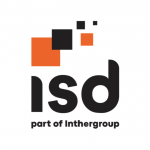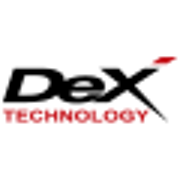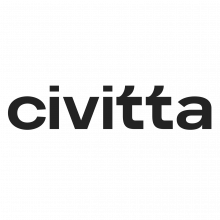
There are 14 Companies in Moldova
that provide Angular Development Services!
Moldova is a small country located in the Eastern European region, with a population estimated at around 2,9 million people. Now that we have made this clear, it’s time to talk about its IT industry and tech development the country will reach by the end of 2025. According to Statista, the IT Outsourcing market is expected to reach $37.8 million in 2025 with a CAGR 2025-2030 of 9.35%.
Discover Top IT Companies in Moldova specialized in Angular and other related services. Find the best IT service providers for your projects.
Angular (formerly AngularJS) is a popular open-source web application framework maintained by Google and a community of developers. It's used for building dynamic, single-page web applications (SPAs) and web-based applications in general. Angular provides a structured and organized way to create complex web applications by extending HTML with additional features and enabling the development of interactive, responsive, and maintainable front-end web interfaces.
Handpicked companies • No obligation to hire • 100% risk-free
Featured Companies in Moldova
This month, the following Angular Development companies managed to provide an outstanding service and support. It's worth taking a look.
We provide 200+ IT experts, including developers, designers, managers, and analysts, from Eastern Europe for global projects.
Software Development Teams for Upscaling Business Ideas
We are focused on the development of complex software systems and mobile applications to solve IT-tasks of small and medium-sized businesses and have...
Explore Top Angular Development Companies in Moldova
WE ARE FEEL IT SERVICES - an IT outsourcing company from France with Headquarters in Romania, Moldova and Israel
High-performance marketing for brands ready to grow.
Services:
Driving value and success for our customers through IT solutions.
Quant Apps delivers innovative, user-focused mobile and web solutions to transform ideas into powerful digital experiences.
Build your digital future with us! Software development company with proven know-how in designing innovative software solutions.
Minicode is a software company from Moldova with offices in the US. We design, build, and scale Custom software, Web & Mobile Apps, SaaS, IoT, and AI.
Optimum Web – Dedicated Software Development & DevOps Outsourcing
Ne specializăm în optimizarea SEO, crearea de website-uri personalizate și gestionarea campaniilor de publicitate pe rețelele de socializare.
Services:
We’re a team of designers and developers who create beautiful BRANDS and design stunning WEBSITES.
Services:
Filter Angular Development Companies in Moldova by Cities
Find the right tech company near you or from a specific city. Some of the best companies might be located in smaller cities.
Find more Angular Development companies around the world
TechBehemoths is the world's most advanced and user-friendly platform to match IT Companies with real clients without hustle.
The IT Industry in Moldova: General Overview
Moldova is a small country located in the Eastern European region, with a population estimated at around 2,9 million people. Now that we have made this clear, it’s time to talk about its IT industry and tech development the country has reached by 2025.
According to the latest statistics, which date from 2023, the country has an income worth $1.154 billion from IT services and products. According to Statista, the IT Outsourcing market is expected to reach $37.8 million in 2025 with a CAGR 2025-2030 of 9.35%. How is this possible, you would ask. There are countries with way more developed IT industry and a larger population that register fewer numbers.
It’s simple. The number of IT companies located in Moldova has increased as well, and now, in 2025, such a small country has 2300 IT companies that mostly export their services and digital products in central and western Europe. The relatively cheap workforce, which is at the same time average qualified with linguistic skills, is probably the most attractive and in demand in Europe. Speaking of languages, almost every youngster aged between 18-35 knows at least two languages: Romanian and Russian. In addition, English is extremely popular and well assimilated by the local population.
But of course, there are more reasons why you should work with a Moldovan IT company.
Why You Should Work With a Moldovan IT Company
The positive evolution of the Moldovan IT industry has also increased the visibility of local companies that create and develop digital products both for internal and external markets. Initially focused on outsourcing, Moldova has grown its startup base with multiple accelerator programs and incubators that are focused on digital.
Now, you can meet Moldovan IT companies and digital agencies all over the world, especially in Western Europe, where some of them have reached the top niche.
The transformation from agriculture to digital in Moldova is visible, and many young professionals are opting for a career in the digital network. In this way, companies here have plentiful resources for creating and developing more and more IT companies.
Another reason for working with Moldovan IT companies is the cheap prices for the quality of their digital services. The monthly average wage of a web developer in Moldova is estimated to be €650 - €3K/mo.
What to Be Aware of When Working With a Moldovan IT Company
Professional services, low prices, and a large talent pool - all these combined make Moldova probably one of the best places to work with an IT company or a web agency in Europe. But, of course, there is more to it.
Moldova’s IT industry is still in a development phase that requires resources and attention. While the European IT market is overwhelmed with companies, it seems there is not much room left after all, and many companies are not so well-known or don’t have enough visibility.
In addition to that, a potential client should also pay attention to a company’s portfolio, experience, number of employees, and hourly rate - just like in any other country, some companies perform outstanding and charge respectively, but as well as companies that have just started their road and are probably inappropriate for big projects.
How Reliable Are Moldovan IT Companies
In terms of reliability, Moldovan IT companies are generally fair, or at least reviews from real clients say so. However, project delivery delays are expected. In contrast with professional services, it should not be a problem, though, since the extra time a client has to wait is worth it. Not to mention that in Western Europe and the US, web agencies and software companies also take their time in most cases to deliver a digital service or product.
How Does the Moldovan IT Industry Relate to the Neighboring Countries?
With Ukraine and Romania as neighboring countries, Moldova is already out of the competition in terms of IT infrastructure. However, the field of Information and Communication doesn’t know physical boundaries, and local software companies don’t seem to have problems with finding new partnerships and contracts.
The government's support policies are also a helping hand for the industry’s development - there are two IT parks already, which charge 0% VAT for employees and only 7% for companies. This stimulates companies and professionals to choose a career in IT and develop the industry.
What is Angular and what are its benefits for your projects?
Angular (formerly AngularJS) is a popular open-source web application framework maintained by Google and a community of developers. It's used for building dynamic, single-page web applications (SPAs) and web-based applications in general. Angular provides a structured and organized way to create complex web applications by extending HTML with additional features and enabling the development of interactive, responsive, and maintainable front-end web interfaces. Here are some key aspects and concepts of Angular:
-
Component-Based Architecture
-
Templates
-
Directives
-
Dependency Injection
-
Services
-
Routing
-
Observable and RxJS
-
Modules
-
Testing
-
Cross-Platform
Angular's structured approach, strong tooling, and vibrant ecosystem of libraries and extensions make it a powerful framework for building modern web applications. It is particularly well-suited for large and complex projects where maintainability and scalability are crucial.
Companies may choose Angular over other front-end frameworks for their projects for a variety of reasons, depending on their specific needs and priorities.
-
Google Backing: Angular is developed and maintained by Google. This association often gives companies confidence in its long-term support, stability, and continuous improvement. Google's involvement is seen as a sign of reliability and commitment to the framework.
-
Mature and Established: Angular has been around for a while and has a strong track record of being used successfully in large-scale enterprise projects. It has a well-defined architecture and best practices, which can be beneficial for maintaining and scaling applications over time.
-
TypeScript Support: Angular is built with TypeScript, a statically-typed superset of JavaScript. TypeScript provides better tooling, code maintainability, and catches errors at compile time, which can reduce bugs and enhance code quality, making it attractive to companies that prioritize robust code.
-
Full-Featured Framework: Angular provides a comprehensive set of tools, libraries, and features out of the box, including routing, form handling, HTTP client, and more. This can save development time and effort compared to integrating multiple third-party libraries in other frameworks.
-
Two-Way Data Binding: Angular offers powerful two-way data binding, which allows for automatic synchronization between the data model and the view. This feature can make it easier to develop interactive and responsive user interfaces.
-
Large and Active Community: Angular has a large and active community of developers and a wealth of resources, including documentation, tutorials, and third-party libraries. This can be beneficial for finding solutions to common problems and getting support when needed.
-
Enterprise-Ready: Angular provides features like dependency injection, modularity through modules, and a strong emphasis on testability. These characteristics are well-suited for building robust and maintainable enterprise-level applications.
-
Strict Coding Standards: Angular enforces a set of coding standards and best practices, which can lead to more consistent and readable code. This can be important for companies with multiple developers working on the same codebase.
-
Cross-Platform Development: Angular can be used for building both web and mobile applications. Companies looking to develop applications for multiple platforms may choose Angular for its ability to share code between web and mobile apps using technologies like NativeScript or Ionic.
-
Integration with Backend Technologies: Angular can easily integrate with various backend technologies and APIs. This makes it suitable for projects where the front end needs to communicate with different types of server-side applications.
-
Security Features: Angular provides built-in security mechanisms to help prevent common web vulnerabilities like Cross-Site Scripting (XSS) and Cross-Site Request Forgery (CSRF). This can be crucial for projects with high security requirements.
-
Ecosystem and Tooling: Angular has a rich ecosystem of tools, extensions, and IDE support, including Angular CLI for project setup and management. This can streamline development workflows and improve productivity.
Ultimately, the choice of Angular or any other framework depends on the specific project requirements, the development team's expertise, and the company's long-term goals. Companies evaluate various factors to determine which framework aligns best with their needs, resources, and priorities.













